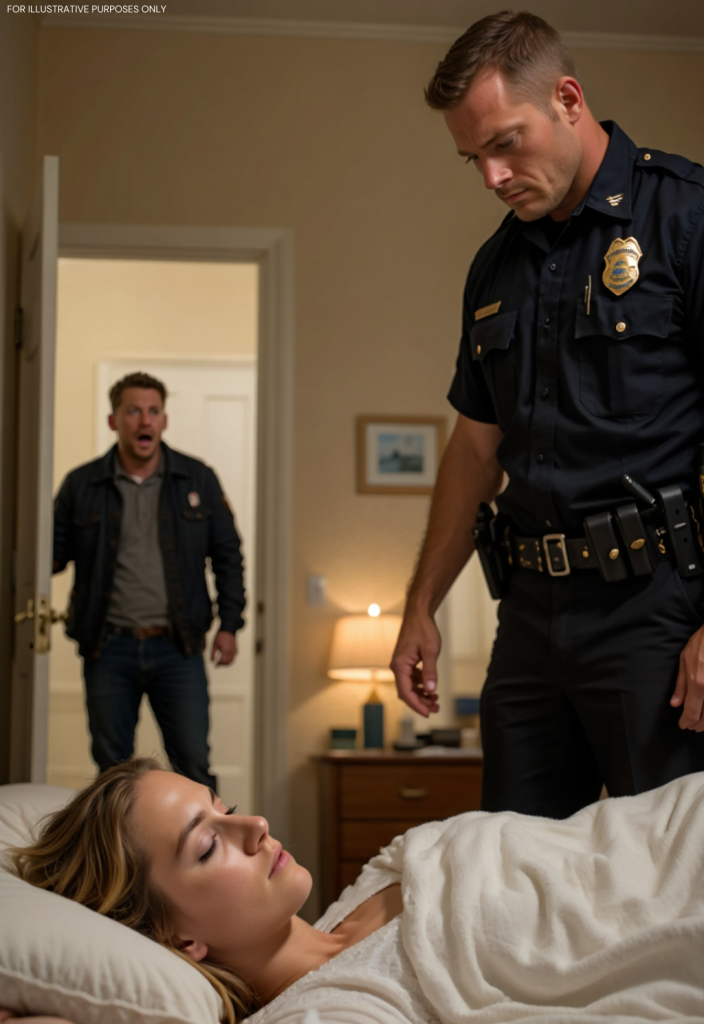Derek Lawson stood by the glass wall of his Chicago office, rain streaking the skyline outside. At forty-four, his reputation commanded both fear and respect. His piercing eyes had dismantled rivals without hesitation; he didn’t aim for small victories—he crushed everything in his path.

The intercom buzzed. His assistant’s voice was crisp: “Mr. Lawson, your wife called to confirm dinner plans.”
Derek’s jaw tightened. Natalie. His wife of seventeen years and mother of their fifteen-year-old son, Carter. Once, she had adored him, but now dinner arrangements felt as distant as school schedules.
He had built Lawson Dynamics from nothing. When his father left, thirteen-year-old Derek poured over financial reports while other kids played. By twenty-eight, he ran multiple companies; by thirty-six, he had married Natalie Brooks, impressed by his rapid rise.
The early years were bright: Carter’s birth, a grand Lake Forest home, the illusion of perfection. But success widened the gap between them, and betrayal quietly crept in.
That evening, Derek came home to find Natalie in an elegant black dress—too formal for a casual dinner.
“You look stunning,” he said, kissing her cheek. She flinched ever so slightly.
“Thanks. How was your day?” she replied, too polished.
“Productive. Tyler mentioned the Reynolds contract. Are you familiar with that client?”
Her eyes flickered with panic. “No… why would I be?”
Derek noted it, filing the reaction away like evidence.
During dinner, she checked her phone repeatedly and excused herself with her purse. Later, Derek sat alone in his study, bourbon in hand, realizing that the man who knew everyone’s secrets had been blind in his own home.
The next morning, he called his younger brother Ryan, a private investigator in Denver, after months of no contact.
“I need surveillance,” Derek said.
“On who?” Ryan asked, weary.
“Natalie… and Tyler Morgan. Quietly. No one must know.”
Three days later, Ryan delivered a folder: photographs of Natalie and Tyler together—at hotels, in cars, entering apartments. Their affair had lasted nearly a year.
“There’s more,” Ryan added. “They met with Travis Cole, a forger. Tyler’s moving assets into crypto—they plan to disappear.”
Derek closed the folder calmly. “They think I’m weak.”
Instead of rage, he built a plan. Cameras monitored the house, her phone mirrored, Tyler shadowed. Their scheme was to fake Natalie’s death in a fiery crash, steal Lawson Dynamics, and vanish. They underestimated him.
He enlisted Rachel Flynn, a former Marine and security consultant.
“I need you to pose as a dead woman,” he said quietly over coffee.
Rachel raised an eyebrow. “That’s… unusual.”
“You’ll be paid. The coroner will confirm it. Meanwhile, she’ll be contained.”
“And her fate?”
“She’ll live long enough to understand betrayal’s cost.”
On the day of the supposed accident, Natalie never touched the wheel—she was unconscious in a soundproof basement beneath their home. Rachel posed in the wreck, concealed just enough. Authorities declared Natalie Lawson dead.
Derek performed grief flawlessly: pale, trembling, a broken father comforting Carter. Neighbors, officers, even Carter believed it. Only Natalie, watching via monitors, knew the truth.
Days later, Tyler arrived at the house, pretending to console Derek while attempting to steal funds. Traps tightened, and federal agents intercepted him as he tried transferring money from hidden accounts. The evidence was irrefutable.
That night, Derek spoke through the intercom to Natalie: “The man you trusted never asked where you were. He saved himself.”
A week later, she pleaded for release. Derek offered two choices: a new identity or eternal confinement. She chose exile, requesting photos of Carter as he grew. Derek agreed.
Years later, at Carter’s college graduation, Derek spotted a woman in a cap and sunglasses at the edge of the crowd. Their eyes met; he nodded once. When he looked back, she was gone.
That night, he received a message: Thank you. He deleted it instantly.
Lawson Dynamics thrived. Carter believed his mother had died tragically. Derek Lawson stood unbeaten. Forgiveness never mattered—control did, and that was enough.